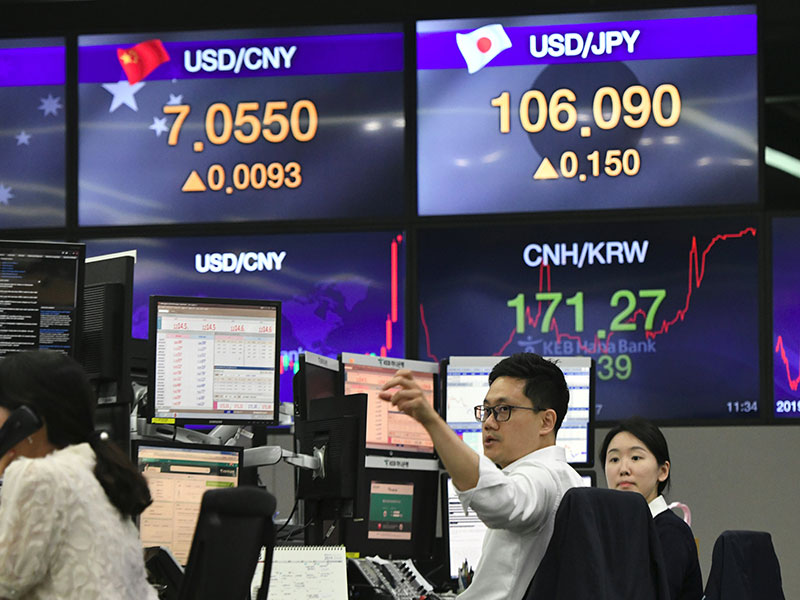
Top 5
It is impossible to predict what the future holds for financial markets – volatility is always lurking around the corner. Nevertheless, choosing the right broker can significantly help investors trying to make sense of the industry.
With more than 40 years of group experience, HYCM is able to deliver first-class trading services to its clients regardless of where they are based or which industries they wish to target. The company’s heritage has cemented it as one of the most trusted and transparent brokers in the forex space.
World Finance spoke to Giles Coghlan, a hedge fund trader and Chief Currency Analyst at HYCM, about his personal trading strategies and his expectations for the markets going forward.
The important news is the news that surprises the market and changes the status quo
What are your favourite markets to trade and why?
Some of my preferred markets to trade include the major currency pairs alongside gold and US oil. The major currency pairs (GBP/USD, USD/JPY, USD/CHF and EUR/USD) have competitive spreads and plenty of liquidity, which means orders are easily filled with minimal slippage.
Gold is a great risk asset at the moment and has been strongly bid all though 2019 on the US-China trade war negotiations and a low-interest-rate environment.
What is your trading style and what type of analysis are you using?
I am a fundamental trader who looks for fundamental news releases to drive markets. Ultimately, all markets are fundamentally driven, so when you know the news story driving prices, it gives you more conviction in your trades.
Having decided on the fundamental outlook of a currency pair and chosen a weak currency to trade against a strong currency, I apply technical analysis for my entries and exits. My main technical tools are the 100 and 200 exponential moving averages, the relative strength index, stochastics, price action and trend lines. My view is that traders should ideally have both aspects of technical and fundamental analysis in their trading.
There is a lot of news. How do you filter out the noise and figure out what’s important?
First, you need to find out what the baseline is for a currency. So, as a hypothetical, let’s say the market is expecting the Reserve Bank of Australia (RBA) to cut interest rates at its next rate meeting. This is the baseline – the RBA is expected to cut.
If the RBA then has the meeting and announces it is not going to cut rates but raise them instead, you would expect the Australian dollar to rally strongly. The important news is the news that surprises the market and changes the status quo.
What is your trading strategy? Do you use the same strategies over different asset classes, geographies and time frequencies?
No, I use a variety of different technical strategies across different asset classes. The one aspect that all my trades have in common is that there are fundamental reasons for taking them. My message to traders is that the technical system is not as important as having a fundamental reason for trading.
Do you have a trading plan and how important is it to have one?
Yes, I have a five-point trading plan that keeps me on track: look back, look forward, look at the charts, look at my risk and look at the outcome of my trade. There is obviously detail to each of those sub-headings, but those five simple questions form the core of my trading plan.
It is more convenient to trade multiple markets from one broker than to have different terminals for different brokers
Do you have a certain risk management strategy as well?
At present, I do not risk more than one percent of my account on any single trade and have a maximum of four positions open at any one time. However, I have rarely had more than two positions open at a time. I only use leverage at a rate of 1:2 and generally trade without any leverage.
What do you look for in a broker?
Regulation is very important to me as it reassures me that certain strict monetary procedures are being followed. Personally, I like a broker with a good range of markets across indices, currencies, commodities and shares. It is more convenient to trade multiple markets from one broker than to have different terminals for different brokers.
Finally, I want costs to be competitive across the instrument that I am going to trade. HYCM is a good example of a broker that fits these criteria; it is multi-regulated and possesses an excellent range of markets.
What sort of risk advice do you offer to clients?
There is an element of risk involved with any investment. With regards to contract for difference (CFD) trades, we provide a ‘high-risk investment warning’. CFDs are complex instruments and come with a high risk of losing money rapidly due to leverage.
Approximately 67 percent of retail investor accounts lose money when trading CFDs with HYCM. Each investor should consider whether they understand how CFDs work and whether they can afford to take the high risk of losing their money.


